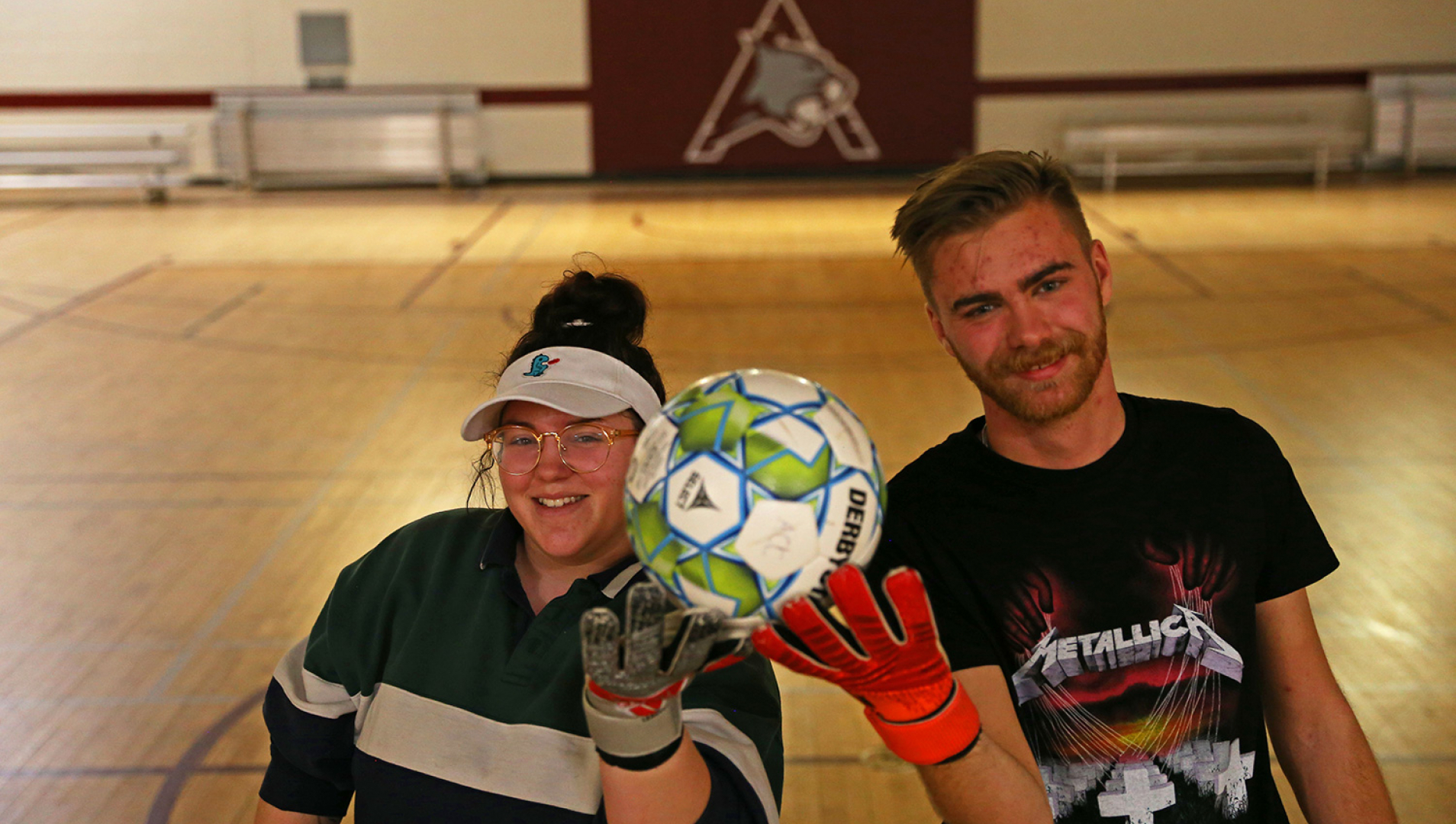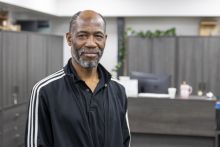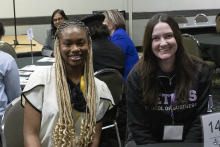Athletes find mental boost amongst teammates
January 24, 2022
Finding strength in numbers, two goaltenders from Assiniboine Community College credit sports with helping them keep a positive mental hygiene during the pandemic.
Dawson Brooks and Tess Omeljanow are goal keepers for their respective Cougars soccer and futsal teams.
For Omeljanow, 21, the pandemic hit hard and fast.
“I jumped pretty much right into the deep end in college, [starting] in the middle of the pandemic,” she said.
Her college introduction came after spending a few gap years working after high school, and the pandemic, she says, had a noticeable impact on her first year of post-secondary education.
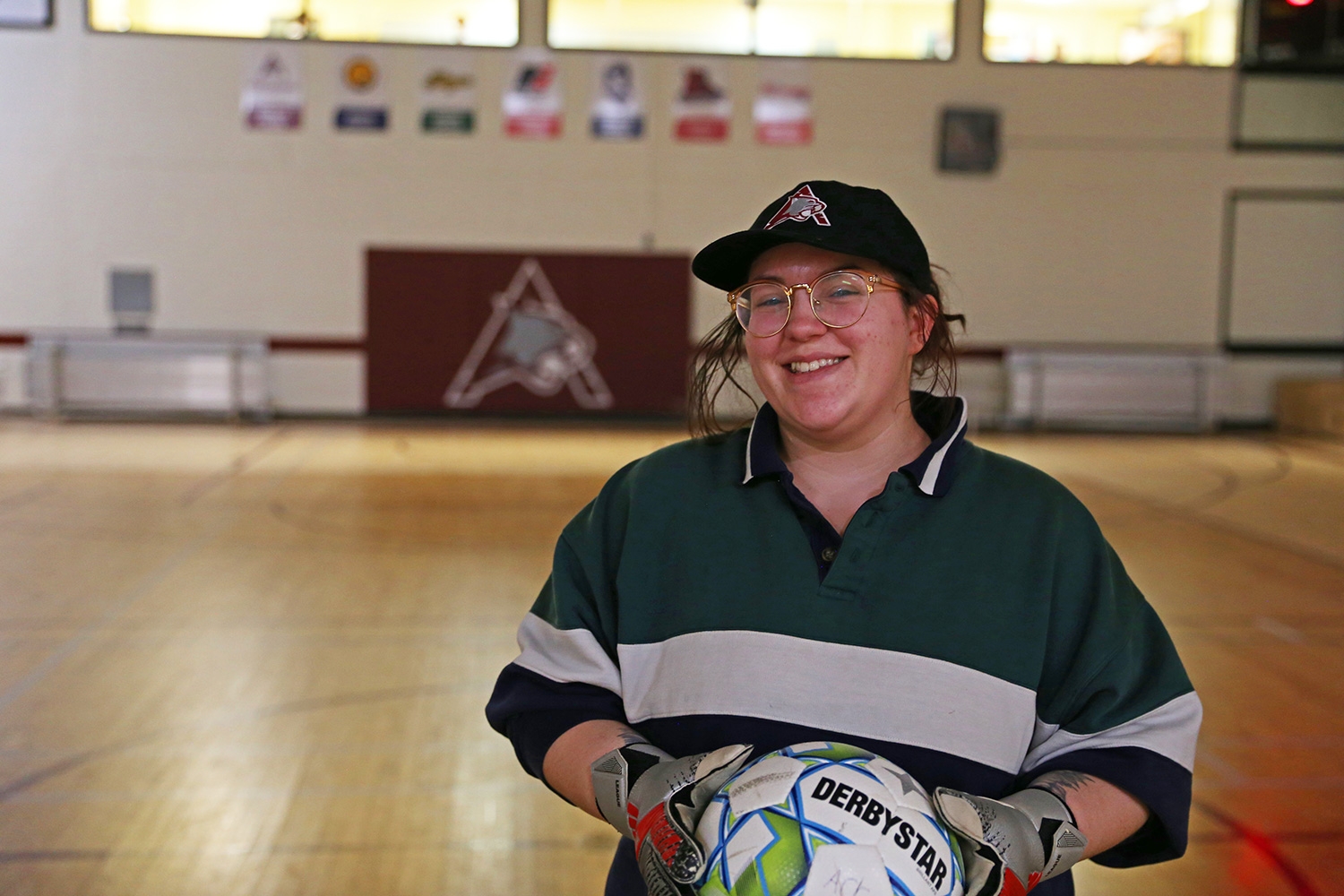
Now in her second year in the Social Service Worker diploma program, she said her peers, instructors and teammates have helped her through what would have otherwise been a more difficult time.
Even when classes weren’t held in person, she said her classmates would regularly come together to check in on one another.
“In that way, I didn’t lose much from my college experience because of the class closeness,” she said, adding that the socialization she experienced through the soccer and futsal teams also helped etch out a social life she might not have otherwise had.
“We’re always there for each other. [We’re] definitely not alone in this.”
Playing soccer and futsal, she says also kept her busy.
“It definitely helped my motivation … Mental health wise, it’s very difficult when you’re sinking under assignments and work and stuff, so [athletics] is just a way to release and be free and hang out with your teammates to get you away from it.”
Brooks, 19, shares a similar experience with his men’s soccer and futsal teams.
A self-described “introvert” from Hamiota, the first-year Media and Communications student said the pandemic hasn’t hit him as hard as it has for some of his peers, but that the time he has spent with his teams has been essential.
“We’d rather stand outside in the freezing cold [together] than be alone inside,” he said.
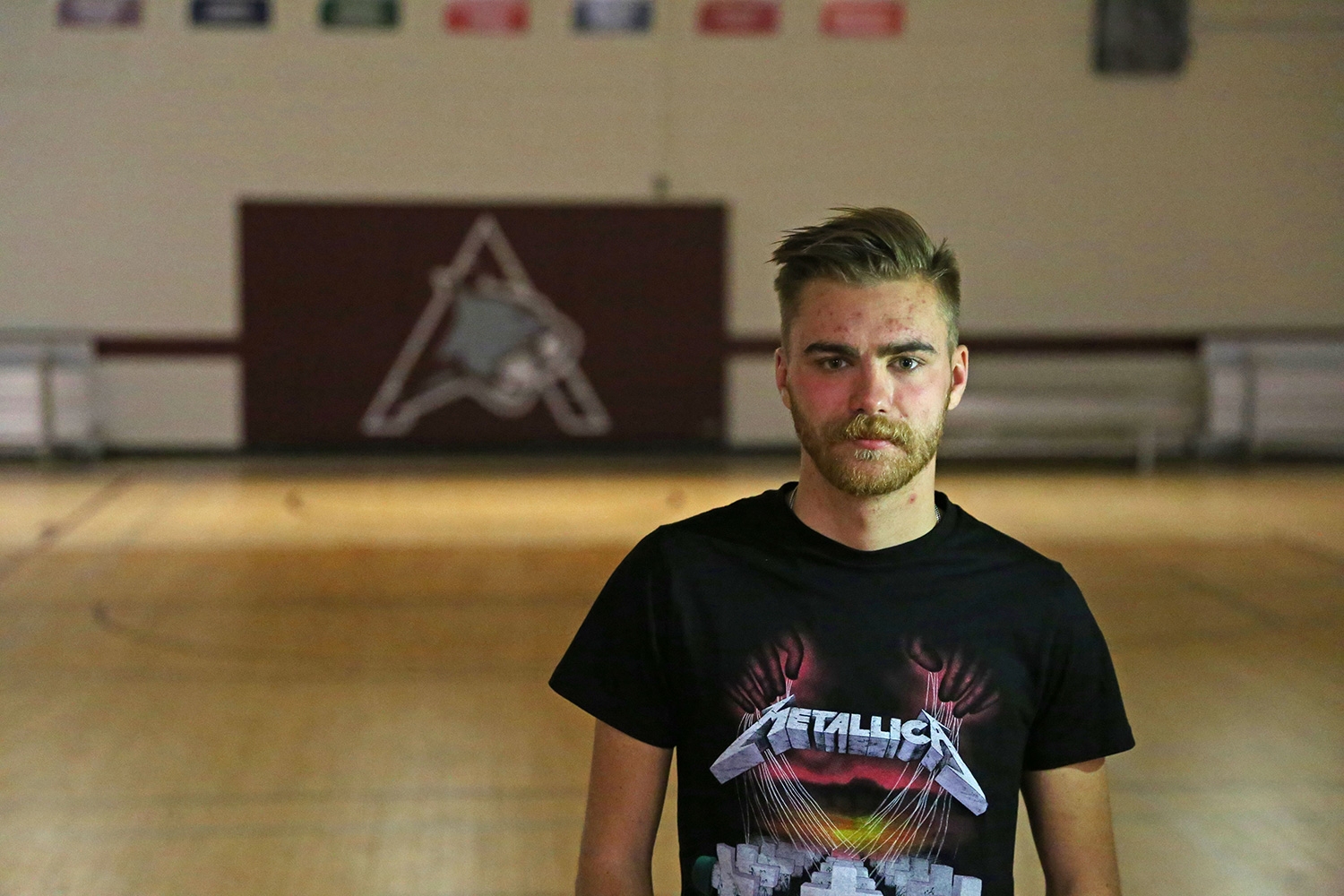
The soccer team endured a difficult season in the standings this year, which he said they learned to take in stride. This helped them bond as a team and taught them how to keep pushing forward through adversity.
The futsal team is doing much better, and he said it’s at least partly because of their experience.
“When your teammates make a mistake, try to pat them on the back and say it’s okay, because playing at this level, you’re going to make mistakes.”
Having this group of people in his life has been integral, Brooks said, and is in stark contrast to the isolation he felt earlier in the pandemic, when just about everything in his life was being done remotely.
“You felt very alone at times,” he said.
Pandemic-era health restrictions also hit Omeljanow hard, exacerbating previous challenges —she has been dealing with depression and anxiety for the past five years.
The divisions of opinion brought about by the pandemic compounded things, she said.
If she were able to go back in time and talk to her first-year self now, she’d tell her to take better advantage of whatever social opportunities that arose.
“Even though it’s hard, I’m still pushing through it and I’m proud of myself for that, just as I’m proud of my peers and teammates.”
Brooks offered a similar sentiment, noting that if he could go back in time and talk to his former self on his first day at Assiniboine, he’d tell him to “stop worrying.”
“Have some fun,” he said. “You can drop a pin on the first day of class and it will echo down the hallway because everyone is so nervous. They’re just so scared of standing out. Just chill, man, have some fun. Your day will go a lot faster and you’ll just have a lot more confidence.”
Brooks said it can be easy to take things too seriously and that it was the women’s teams and outlook that taught him to relax during their time spent travelling to games together.
“The women’s teams were just loud and fun,” he said, which helped put everyone at ease and better enjoy themselves.
Both Brooks, an introvert, and Omeljanow, who has social anxiety, plan on entering fields where social interaction is front and centre.
Brooks plans on working with musicians in studios and Omeljanow will be working in social services.
They both agree that pandemic or otherwise, social skills are integral to whatever paths they forge and that their experiences in sports have helped set them up for success.

